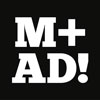AUCKLAND, Today: Stickybeak, an NZ online platform designed to replace traditional public opinion & quantitative research, was launched yesterday to agencies, marketers, and communication leaders.
Promising to replace increasingly “broken” quantitative research methods, Stickybeak claims to be able to field and return broadly nationally representative surveys at a fraction of the cost of many traditional offerings, as well as helping users target niche groups, until now, deemed too-hard-to-reach.
Stickybeak was founded by David Talbot, ceo at UMR (New Zealand’s leading research consultancy), PR and advertising industry veteran David Brain, and tech business experts Brody Nelson and Kyle Hickey.
Talbot said: “Agencies, academics, and company marketing and communication teams have long appreciated the value of quantitative research, but have typically had no choice but to work through market research agencies and contend with increasingly outdated methods of sample recruitment and questioning.
“Research is therefore often too expensive, too slow, and because the survey formats are dull, can often even damage the commissioning brand. Achieving reliable samples by phone is getting harder, and most online formats rely on bureau panels of varying quality – sometimes respondents are encouraged to answer multiple surveys a week.
“The respondent interfaces are mostly bland, clunky, a nd complicated, leading to low response rates as people either give up after a few questions or answer for speed rather than accuracy. Much of the model is fundamentally br oken,” he said.
“Stickybeak is an answer to these challenges.
“Stickybeak recruits fresh survey respondents through social media. From today, at our public beta launch, we are offering a service that can survey broadly nationally representative groups in four countries (the UK, US, Australia and New Zealand) and we’ll be adding more very soon.
“Additionally because Facebook and Instagram together have three billion users between them, Stickybeak can often target very specific niche groups, previously too difficult or expensive to reach – and we can often do that almost anywhere in the world.
“From expectant mothers in Auckland to rugby fans in USA or millennials in Sunderland, Stickybeak can be incredibly specific in who it targets.”
“From expectant mothers in Auckland to rugby fans in the USA or millennials in Sunderland, Stickybeak can be incredibly specific in who it targets. And that is important because business, marketing and communication decisions are often reliant upon insights about very small or special interest groups as well as general populations.”
David Brain said: “Everyone involved in marketing and communications knows that good research can make the difference between success and failure. Yet most will admit privately that they don’t use it enough because it’s slow, expensive, involves dealing with research agencies – they are also often suspicious of sample recruiting methods and therefore results.
“Stickybeak fixes this and hopefully means better decisions about products, pricing and design leading to better creative and communications strategies, more effective outputs, and more winning pitches,” he said.
“Stickybeak’s interface with survey respondents is designed to be highly engaging and mimics chat interfaces like WhatsApp and Facebook Messenger. It features chatbot characters and animations to maintain respondent attention and participation.
CTO Brody Nelson said: “Answering questions on most topics can be a fundamentally dull experience. Add to that the hard-to-use old-fashioned email-based interfaces mostly in use today and many respondents either stop after a few questions or opt for speed of response over truthfulness in their race to finish the survey.
“Consequently, we designed an interface that is light and engaging enough to keep people focused on the questions longer and with more rigour,” he said.
Designer lead Kyle Hickey said: “The survey-building interface we’ve designed is unashamedly simple. That means that if you are technically adept enough to order a combination meal for four with Uber Eats, then you can certainly commission a Stickybeak survey from your desktop.”
The fees
Stickybeak charges a monthly subscription for access to the platform ranging from US$19 to US$79 a month for general survey use and then prices specific uses in addition. Nationally representative surveys (gender/age/geography) of 1000 respondents in the UK, Australia and New Zealand cost US$4500 and 1500 respondents in the US costs US$6000.
Niche audience polling costs are determined by the number of respondents and the size of the niche. Survey commissioners can commit to a fixed price or a fixed number of responses and eventually will be provided with pricing guidance by the system. For example, a poll of 200 expectant mothers in New Zealand costs around US$1200.
Share this Post



